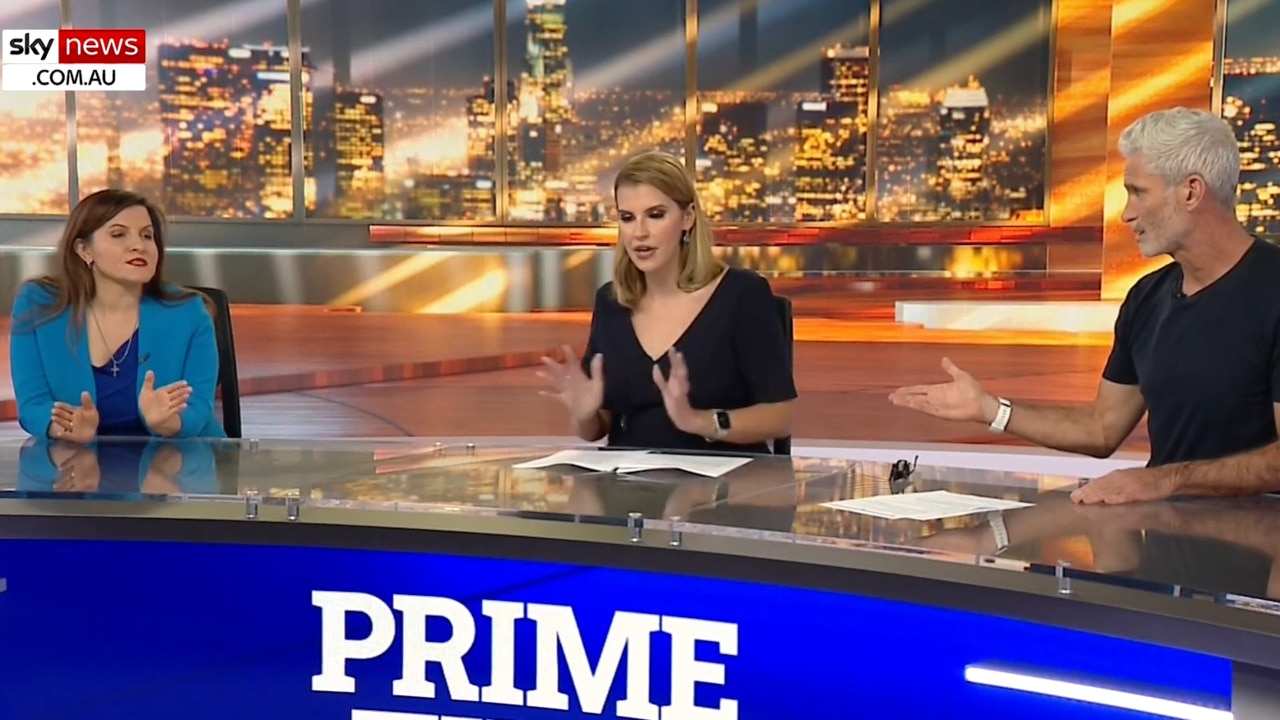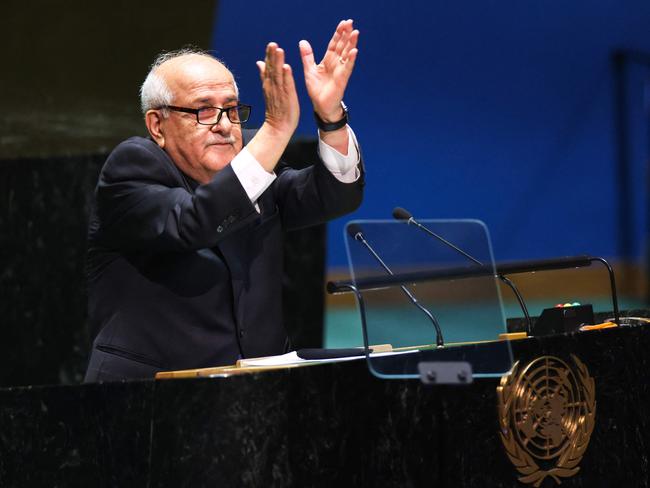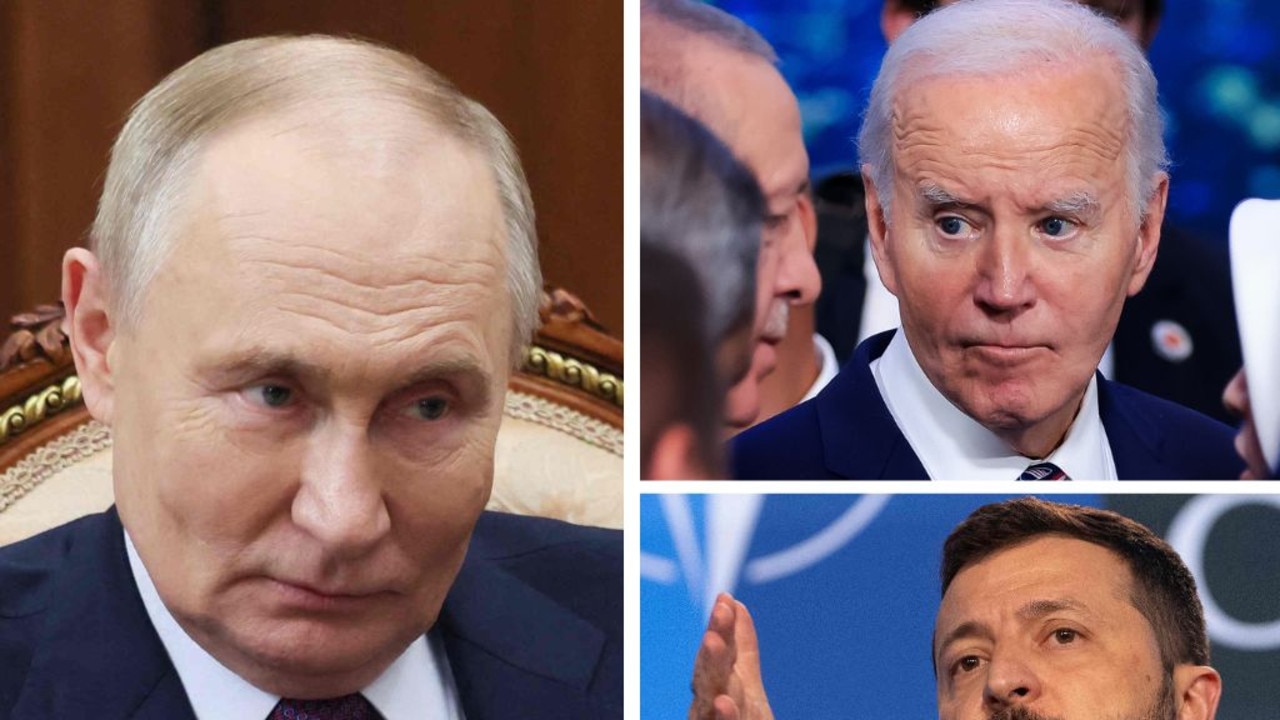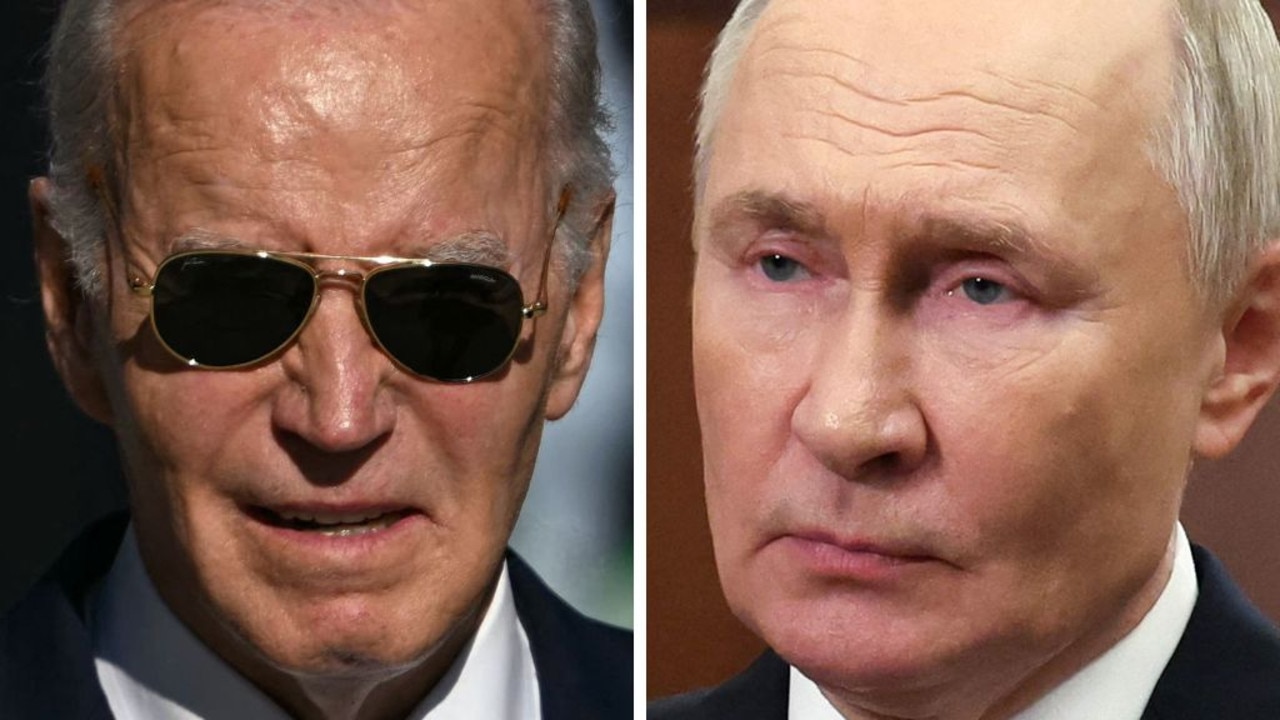Australia supports push to admit Palestine as full United Nations member
Australia has split with its allies and defied warnings from Israeli leaders to support a Palestinian push for statehood in a momentous United Nations vote.

World
Don't miss out on the headlines from World. Followed categories will be added to My News.
Australia has supported Palestine’s bid to become a full member of the United Nations, splitting with our closest allies and defying the warnings of Israeli leaders in a historic vote.
The UN General Assembly on Friday (local time) overwhelmingly backed a resolution that gives Palestine new rights to participate in the body and pushes the UN Security Council to admit it as a full member, essentially recognising Palestinian statehood.
The US voted against the resolution and the UK and Canada abstained. But Australia’s ambassador to the UN James Larsen supported what he described as the “aspiration for full Palestinian membership of the United Nations”.
He said the resolution was “not what we would propose” but that it offered “unwavering support for the two-state solution of Israel and Palestine living side-by-side in peace and security within recognised borders”.

“Like many other countries, our vote for this resolution is not bilateral recognition of Palestinian statehood,” Mr Larsen said.
“Nevertheless, Australia no longer accepts that recognition can only come at the end of the peace process.”
Foreign Minister Penny Wong said that although the passing of a resolution supporting Palestine’s bid for recognition won’t “end this conflict”, it’s necessary to “build momentum towards peace”.
“This vote is not about whether Australia recognises Palestine. We will do that when we think the time is right,” she said.
“What we would say and what I do say is Australia no longer believes that recognition can only come at the end of a peace process, it could occur as part of a peace process.”
Australia’s vote will spark a furious reaction from Jewish leaders, who had warned the resolution would reward Hamas’s October 7 terrorist attack on Israel and was inconsistent with Australia’s past practices for recognising statehood.
Opposition foreign affairs spokesman Simon Birmingham accused the government of misleading Australians, undermining decades of bipartisan foreign policy support for a negotiated two-state solution, and “advancing the wishes of terrorists”.

“Labor’s support for the resolution sends a shameful message that violence and terrorism get results ahead of negotiation and diplomacy,” he said in a statement.
In dramatic scenes before the vote in New York, Israel’s permanent representative to the UN Gilad Erdan held up a picture of Hamas’s military leader Yahya Sinwar which called him Palestine’s “president”. He then put a copy of the UN charter through a paper shredder.

“Today, I will hold up a mirror for you,” he said.
“You are shredding the UN charter with your own hands … That’s what you’re doing, shredding the UN charter. Shame on you.”
Mr Erdan said the UN was attempting to allow a “terror state … into its ranks” that would be led by the “Hitler of our times”.
Riyad Mansour, Palestine’s representative at the UN, said voting in favour of the resolution was “a vote for Palestinian existence”.

“It is not against any state … It is an investment in peace,” he said.
“We want peace, we want freedom.”
Mr Larsen, in a brief speech on behalf of the Australian government, said the resolution’s support for a two-state solution was a “clear rejection” of Hamas.
“Australia has long believed a two-state solution offers the only hope for breaking the endless cycle of violence and achieving lasting peace,” he said.
“Like many member states, Australia has been frustrated by the lack of progress. There is a role for the international community to build momentum, set expectations that parties resume negotiations for tangible progress, and to support efforts for a political process.”
He called for reform of the Palestinian Authority to lead a future state, as well as direct negotiations “on final status issues including Jerusalem and borders”.

After government sources had suggested Australia could support what it considered to be a “significantly watered down” resolution, Mr Larsen described it as a “modest extension of additional rights” for Palestine at the UN without providing full membership.
US representative Robert Wood told the General Assembly that Palestinian statehood could “only come from a process that involves direct negotiations between the parties”.
“There is no other path that guarantees Israel’s security and future as a democratic Jewish state. There is no other path that guarantees Palestinians can live in peace and with dignity in a state of their own,” he said.
The US used its veto power on the Security Council to block full recognition of a Palestinian state last month, and it is expected to do so again despite the General Assembly resolution.
The vote could also spark moves in Washington DC to cut off funding to the UN, because under US law, UN organisations cannot be funded if they grant full membership to groups that do not have “internationally recognised attributes” of statehood.
More Coverage
Originally published as Australia supports push to admit Palestine as full United Nations member




